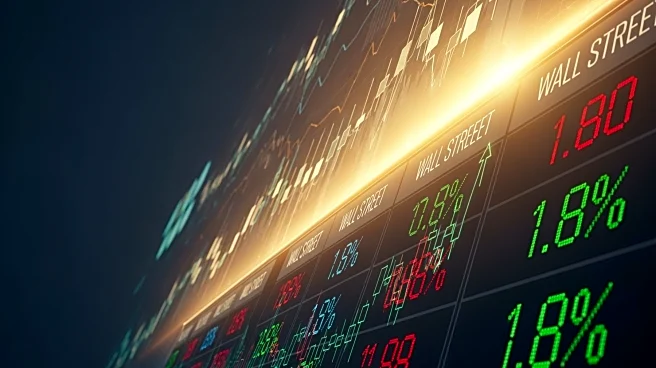What's Happening?
Wall Street experienced modest gains as investors anticipate key events, including a Federal Reserve interest rate announcement and a meeting between President Trump and China's President Xi Jinping. The
Dow Jones Industrial Average rose by 0.3% in futures trading, while the S&P 500 and Nasdaq futures also saw slight increases. This comes as major companies like Amazon and UPS report earnings, with Amazon announcing job cuts and UPS exceeding sales and profit expectations. The Federal Reserve is expected to cut interest rates by a quarter of a percentage point to stimulate the slowing job market, although concerns about inflation remain. Additionally, President Trump is expected to discuss a potential trade agreement with President Xi at an upcoming Pacific Rim summit, which could ease ongoing trade tensions.
Why It's Important?
The developments on Wall Street reflect broader economic trends and investor sentiment. The anticipated Federal Reserve rate cut is significant as it aims to support the job market, but it also raises concerns about potential inflation. The meeting between President Trump and President Xi is crucial for international trade relations, as a new agreement could stabilize markets and benefit businesses affected by previous trade tensions. Companies like Amazon and UPS are adjusting strategies in response to economic conditions, highlighting the dynamic nature of corporate decision-making in uncertain times. These events collectively impact U.S. economic stakeholders, including investors, businesses, and policymakers.
What's Next?
Investors and market analysts will closely monitor the Federal Reserve's announcement on interest rates, as it will influence economic forecasts and investment strategies. The outcome of the Trump-Xi meeting is also pivotal, as any new trade agreements could reshape global trade dynamics. Major U.S. companies are set to release earnings reports, which will provide further insights into corporate health and economic trends. Stakeholders will be watching for any shifts in policy or market reactions that could affect future economic stability.










